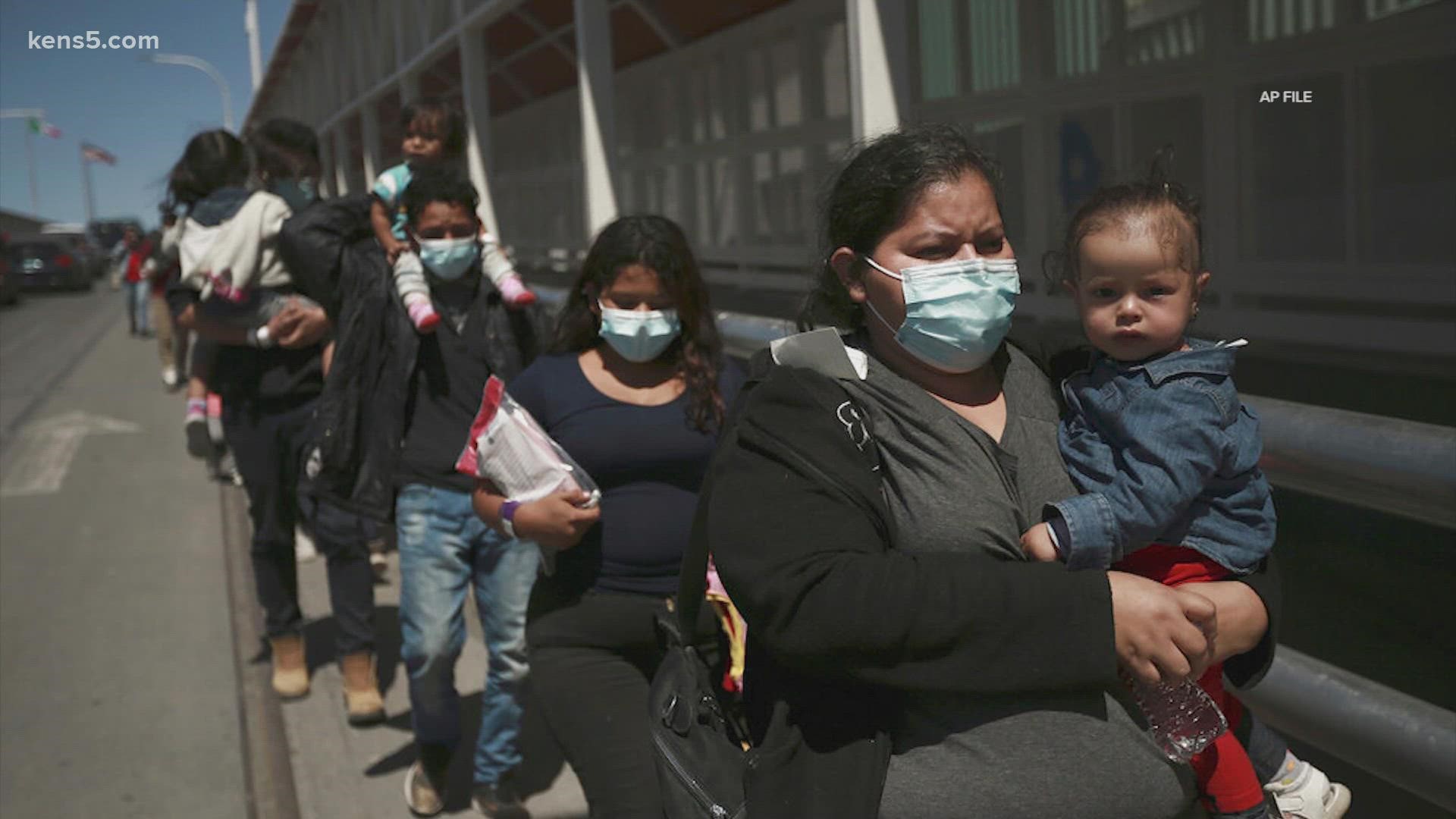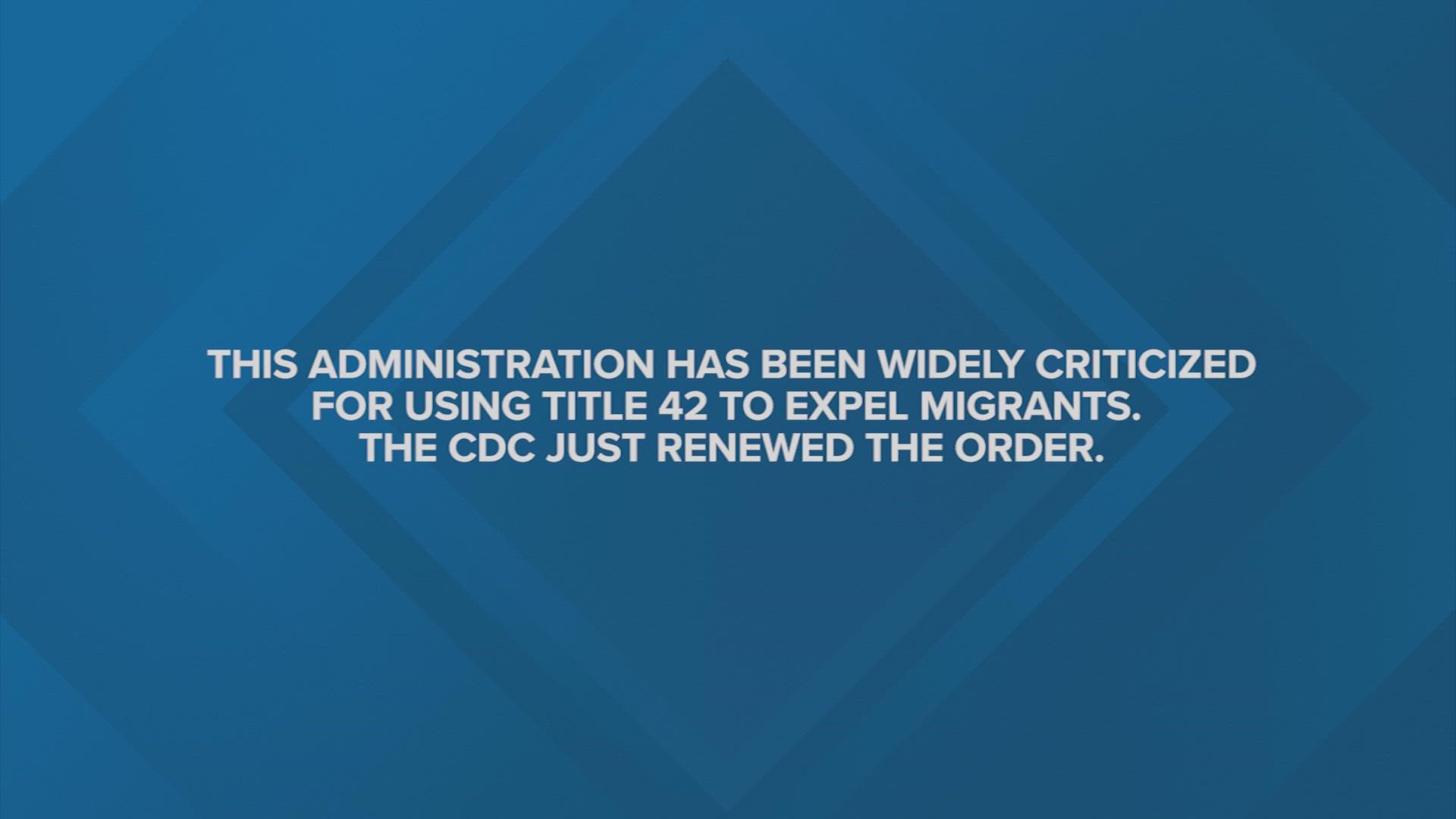TEXAS, USA — The White House recently released its immigration blueprint for what it calls “a fair, orderly and humane immigration system.”
The blueprint talks about ensuring a “well-managed border,” implementing an orderly and fair processing of asylum applications, working with other countries on migration and suggested Congress pass some legislative measures, including one that would provide citizenship to Dreamers, immigrants who were brought to the United States as children and don’t have documentation to permanently stay.
KENS 5 has been asking for an interview with the White House regarding immigration for a while. We were granted a seven-minute window August 4.
It’s impossible to do a deep dive on immigration, what the administration has done already and is planning to do with in that time.
We started by asking Pili Tobar, Deputy Communications Director for the White House about CDC’s renewal of Title 42, a Trump-era rule that was just extended by the Centers for Disease Control and Prevention. It allows Border Patrol to expel migrants because of the pandemic, a controversial rule that’s gotten praise and criticism.
“Our goal is to be able to get back to a world in which Title 42 doesn't exist and a world in which we are able to process people and in a fair and orderly manner without needing to have this in place,” Tobar told KENS 5. “If CDC is saying Title 42 stay for now, then our job is to listen to the experts and to continue there and follow their guidance.”
Ruby Powers is a board-certified immigration attorney and a long-time advocate.
“The Biden Administration does have an opportunity not to invoke it at the border if they didn't want to,” Powers said. “And so that is the concern that we have, because it's adding another layer preventing people from entering the United States.”
A lot of conversations in Texas recently have centered around COVID and migrants, what, if any impact migration is having on the number of cases.
The City of McAllen and Hidalgo County have expressed concern with the numbers of migrants Border Patrol was dropping off for non-profits to take care of. McAllen set up a temporary tent shelter for migrants this week, saying the organizations typically taking care of people are overwhelmed.
In a news conference Thursday, Hidalgo County leaders said the temporary tents that have been moved from McAllen to Anzalduas Park in the City of Mission, are for COVID-positive migrants. The capacity was initially at 250 and growing to 650 late Thursday or early Friday. This doesn’t mean there are 650 COVID-positive migrants who need services, officials said.
“It is a very quickly moving situation, and we're having to adapt to it,” said Roy Rodriguez, McAllen City Manager. “We had about a 24-hour notice from Catholic Charities that their capacity was at full, and we were having problems and concerns about being able to handle the
COVID positive immigrants. As you know they have been able to house them throughout the Valley, and that was no longer an option.”
According to Catholic Charities, not everyone staying at the emergency COVID shelter or in the tents is COVID-positive. A person could be sick, but the entire family would want to stay with them while they recover.
“They're tested daily,” said Hidalgo County Judge Richard Cortez. “We have to isolate them. And the families, the ones that didn't test positive, they were free to leave. But if they decided to stay with their family, then they're all here.”
The government has been relying on non-profit organizations for COVID testing and for vaccinations. And according to Tobar that’s not about to change.
“What we are doing is continuing to work with NGOs and with local electorates and others who are the ones that are helping vaccinate those that are not removable by Title 42,” Tobar told KENS 5.
In its immigration plan, the Administration talks about improving expedited removal. KENS 5 asked Tobar what improvements the White House was talking about.
“We are returning people to the countries where they came from,” she said. “That is not something that necessarily happened that way in the past. And we are making sure that we are doing it in the most humane and fair manner possible. People are asked a certain number of questions about whether to determine whether they have a claim for asylum and if the answer that it isn’t, and then they will go through expedited removal and get return to the country where they came from.”
“We're very concerned as immigration advocates and attorneys about this change, because they recently came out with the policy as of July 30,” Powers told KENS 5. “In many cases, people refrain from telling the crux of their story what they're truly afraid of because they don't know what to say. I'm concerned about those who have genuine asylum claims. And those are the ones that if they're not given an opportunity and just summarily dismissed, then those are the ones who don't have an opportunity to come through.”
Title 42 is being challenged in court.
Many questions remain about further details and timing of some of the proposals mentioned in the Biden Administration’s immigration blueprint.


